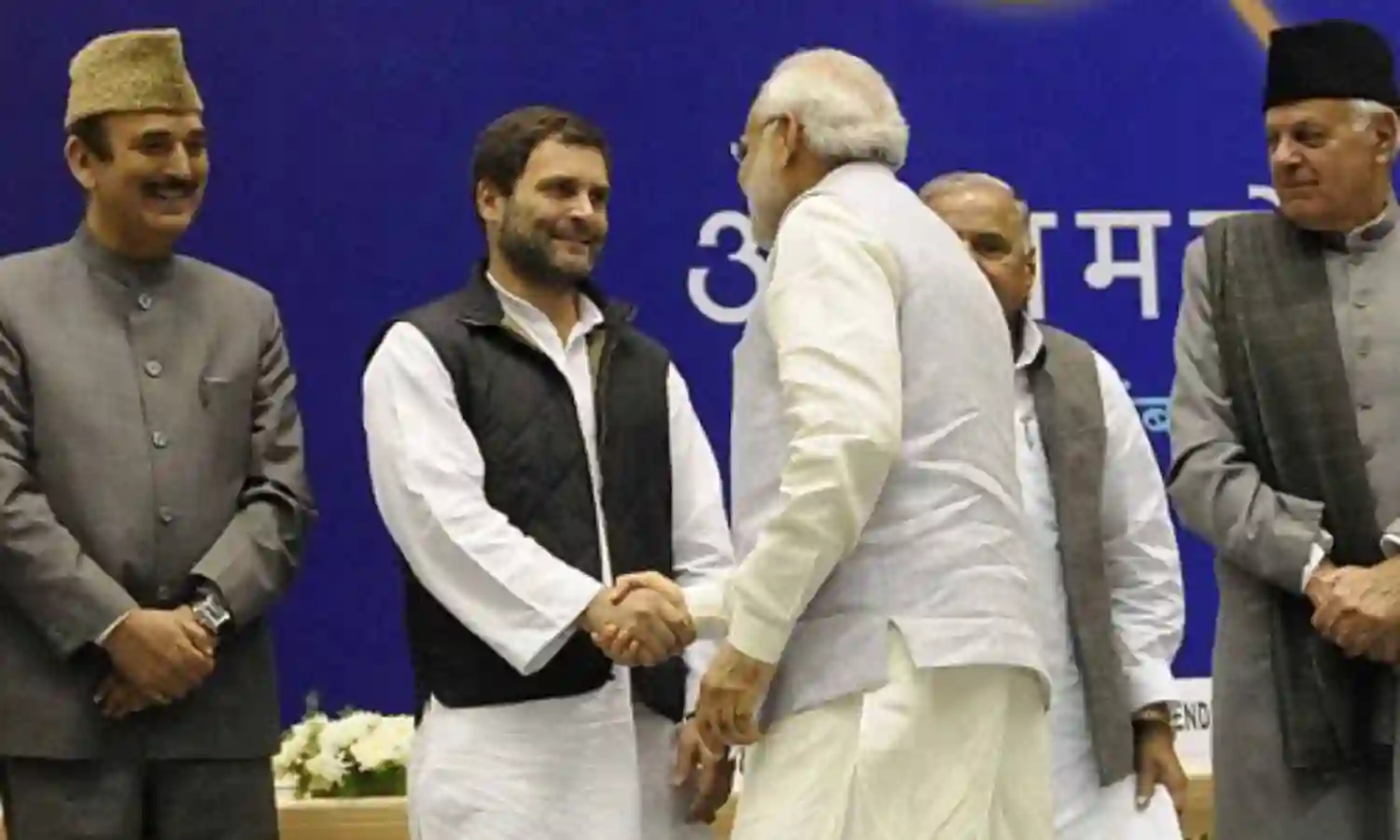Gujarat Campaign Makes Rahul Gandhi, Puts PM Modi on the Defensive
Gujarat Campaign Makes Rahul Gandhi, Puts PM Modi on the Defensive

NEW DELHI: Gujarat, win or lose, has been the turning point in the political graph of Congress president Rahul Gandhi after 13 years in public life. Conversely, the election campaign has not added to the stature of Prime Minister Narendra Modi whose increasingly shrill rhetoric, and references to senior leaders and officials including Manmohan Singh and former Vice President Hamid Ansari, have earned him criticism all around.
The Gujarat polls, although earmarking important issues, did revolve around the two personalities with other leaders from the Congress and the BJP being part of a general support system for Rahul Gandhi and PM Modi respectively. Interestingly, the former seemed comfortable and at ease during the campaign while the latter appeared more unsure, and hence more strident, in his home state. Both drew crowds, the difference being that Rahul Gandhi gained an audience while the Prime Minister’s following seemed static in some areas, and less than before in others.
PM Modi changed goal posts through the campaign. He started with “I am Vikas, I am Gujarat’ then diluted this to focus on the Nehru-Gandhi dynasty that bore the brunt of a harsh attack. And then shifted entirely from these issues to his own persona, raising the caste issue and describing himself as an OBC towards the end of the campaign. Pakistan also came in as expected, with the last speeches of the PM before the end of the campaign dwelling on a Congress-Pakistan ‘conspiracy’ to unseat him in Gujarat.
On the other hand, Rahul Gandhi remained consistent throughout the campaign, refusing to shift from the focus on development---or rather lack of it---unemployment, farmers distress, demonetisation and GST. In a marked shift from earlier campaigns in Bihar and Uttar Pradesh, the Congress president made several three day visits to Gujarat, staying in the state, with road shows, public rallies, interactions with local people. He skipped security to mingle with the crowds, hugging and embracing, reaching out, smiling and cutting an image of an accessible, responsive leader.
PM Modi, in contrast, fell back on this front as his engagement with the people was limited largely because of his public meetings from podiums constructed at security- determined distance from the crowds. His road shows were limited. He did not hold a single press conference, and kept a noticeable physical distance even as he spoke of Gujarati Asmita. However, his popularity remains unequestionable, although die hard supporters across constituencies did admit with a wry smile that the sheen had worn off just that little bit. At the same time they pointed out that the Prime Minister did not need to introduce himself to the people, and the very fact that he was campaigning was enough.
PM Modi stressed on his Gujarati identity, through clothes and use of the language through the campaign. The idea was that by establishing himself as the true son of the soil, the BJP would then be able to label the Congress leader as the ‘outsider’. But this did not work, and starting from the visit to the temples, and the direct interaction with the masses, Rahul Gandhi’s acceptability in Gujarat was established. This was further aided by the three local leaders supporting the Congress---Hardik Patel, Jignesh Mevani and Alpesh Thakor who have been the Congress party’s biggest assets in Gujarat.
It was, thus, a shrewd move to declare Rahul Gandhi President during the campaign, regardless of the results. As right now he is on a high, with the ‘Pappu’ tag shaken off completely, and his popularity in the state a matter of discussion even in Delhi’s drawing rooms.
Significantly, both the parties are looking at the two leaders for winning these elections. The BJP is looking for the Modi Magic to repeat itself, while the Congress is now optimistic that Rahul Gandhi’s charisma will deliver the results.



